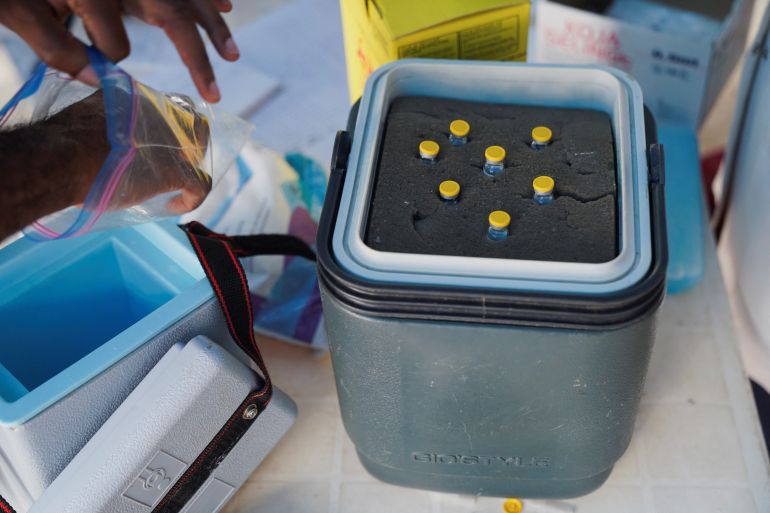WHO says mpox remains public health emergency of international concern
UN health agency says its decision is ‘based on the rising number and continuing geographic spread of cases’.
Mpox vaccine bottles at the Federal Medical Center in Abuja, Nigeria [Marvellous Durowaiye/Reuters]Published On 22 Nov 202422 Nov 2024
The World Health Organization (WHO) says it will keep its alert for mpox at the highest level amid a surge in cases.
A WHO committee made up of about a dozen independent experts made the decision at a meeting in Geneva on Friday, three months after the WHO first declared a public health emergency of global concern in August.
The WHO said its decision was “based on the rising number and continuing geographic spread of cases, operational challenges in the field, and the need to mount and sustain a cohesive response across countries and partners”.
There has been a surge in mpox cases this year, predominantly focused in the Democratic Republic of the Congo (DRC) and neighbouring countries.
A first batch of vaccines was rolled out last month and appears to have had an impact on containing cases of the highly contagious disease, but the United Nations agency has been waiting for substantial proof to discuss the impact of vaccinations.
The African Union’s health watchdog warned at the end of October that the mpox outbreak was still not under control and called for more resources to avoid a pandemic that it said could potentially be worse than COVID-19.
The virus is usually mild, but it can be fatal in rare cases.
Mpox is believed to have killed hundreds of people in the DRC and elsewhere last year as it also spread to Burundi, Kenya, Rwanda, Nigeria and Uganda, causing a continent-wide emergency.
The disease can be spread through close contact with an infected person, sexual activity or breathing in infectious particles. The virus then replicates and spreads to the lymph nodes, leading them to swell before further spreading and causing rashes or lesions.
